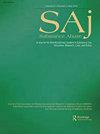A Systematic Literature Review and Narrative Synthesis of Effective Interventions for Family and Caregivers of People who Use Methamphetamine
IF 2.8
3区 医学
Q2 SUBSTANCE ABUSE
引用次数: 4
Abstract
Background: Methamphetamine is a highly addictive central nervous stimulant associated with numerous adverse health, psychological, and social impacts. Family and friends of people who use methamphetamine often take on a crucial caregiving role in supporting their loved one. Consequently, they can experience a range of psychosocial challenges themselves. This review aimed to identify and assess the effectiveness of interventions designed to support caregivers of people who use methamphetamine. Methods: A systematic search of relevant literature published in the English language was conducted. Of 2257 records identified, only 2 evaluation studies examined interventions specifically designed for caregivers of people who use methamphetamine. Additionally, four qualitative accounts described experiences of caring for people who use methamphetamine. These accounts were summarized narratively to provide a more complete picture of family and caregiver experiences and coping strategies. Results: Effective treatment components included tending to caregiver concerns and providing training to enhance informational support and problem-solving skills. Qualitative accounts uncovered a range of challenges experienced by caregivers, such as emotional distress, concern for the person using methamphetamine, disrupted family structures, and financial difficulties. Coping strategies included attempts at managing and supporting the person using methamphetamine while protecting the overall cohesion and wellbeing of the family unit. Conclusions: This review highlighted a lack of evidence-based interventions for caregivers of people who use methamphetamine. More research is needed to clarify concerns that may be particularly relevant for those in a caregiving role.对甲基苯丙胺使用者的家庭和照顾者的有效干预的系统文献综述和叙述综合
背景:甲基苯丙胺是一种高度成瘾性的中枢神经兴奋剂,与许多不良的健康、心理和社会影响有关。使用甲基苯丙胺的人的家人和朋友通常在支持他们所爱的人方面发挥着至关重要的照顾作用。因此,他们自己也会经历一系列的社会心理挑战。本综述旨在确定和评估旨在支持甲基苯丙胺使用者照顾者的干预措施的有效性。方法:系统检索已发表的相关英文文献。在确定的2257份记录中,只有2项评估研究检查了专门为使用甲基苯丙胺者的照料者设计的干预措施。此外,四个定性描述了照顾使用甲基苯丙胺的人的经历。这些叙述总结,以提供一个更完整的画面的家庭和照顾者的经验和应对策略。结果:有效的治疗成分包括倾向于照顾者关注和提供培训,以提高信息支持和解决问题的能力。定性分析揭示了护理人员所经历的一系列挑战,如情绪困扰、对使用冰毒者的担忧、家庭结构破裂和经济困难。应对策略包括试图管理和支持使用甲基苯丙胺的人,同时保护家庭单位的整体凝聚力和福祉。结论:本综述强调了对甲基苯丙胺使用者护理人员缺乏循证干预措施。需要更多的研究来澄清那些可能与照顾者角色特别相关的担忧。
本文章由计算机程序翻译,如有差异,请以英文原文为准。
求助全文
约1分钟内获得全文
求助全文
来源期刊

Substance abuse
SUBSTANCE ABUSE-
CiteScore
5.90
自引率
2.90%
发文量
88
审稿时长
>12 weeks
期刊介绍:
Now in its 4th decade of publication, Substance Abuse journal is a peer-reviewed journal that serves as the official publication of Association for Medical Education and Research in Substance Abuse (AMERSA) in association with The International Society of Addiction Medicine (ISAM) and the International Coalition for Addiction Studies in Education (INCASE). Substance Abuse journal offers wide-ranging coverage for healthcare professionals, addiction specialists and others engaged in research, education, clinical care, and service delivery and evaluation. It features articles on a variety of topics, including:
Interdisciplinary addiction research, education, and treatment
Clinical trial, epidemiology, health services, and translation addiction research
Implementation science related to addiction
Innovations and subsequent outcomes in addiction education
Addiction policy and opinion
International addiction topics
Clinical care regarding addictions.
 求助内容:
求助内容: 应助结果提醒方式:
应助结果提醒方式:


